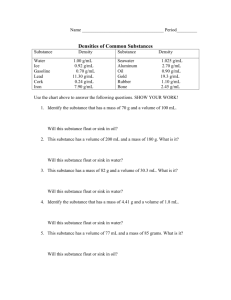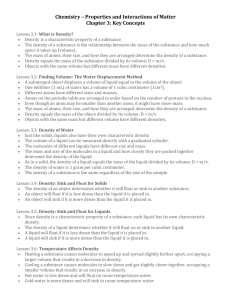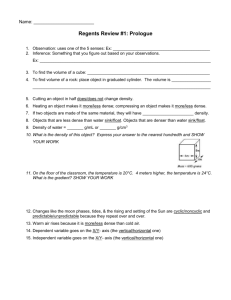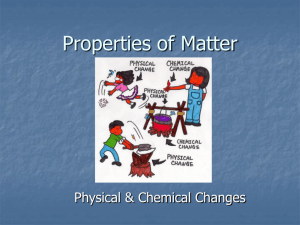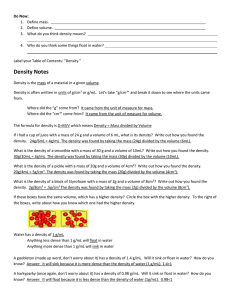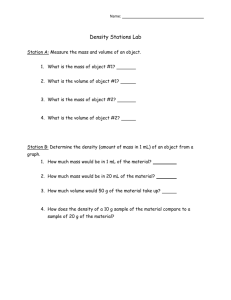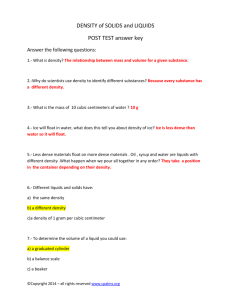1. Water weighs more than an equal volume of... 2. Clay weighs more than an equal volume of... Chapter 3, Lesson 4 Activity Sheet Answers
advertisement
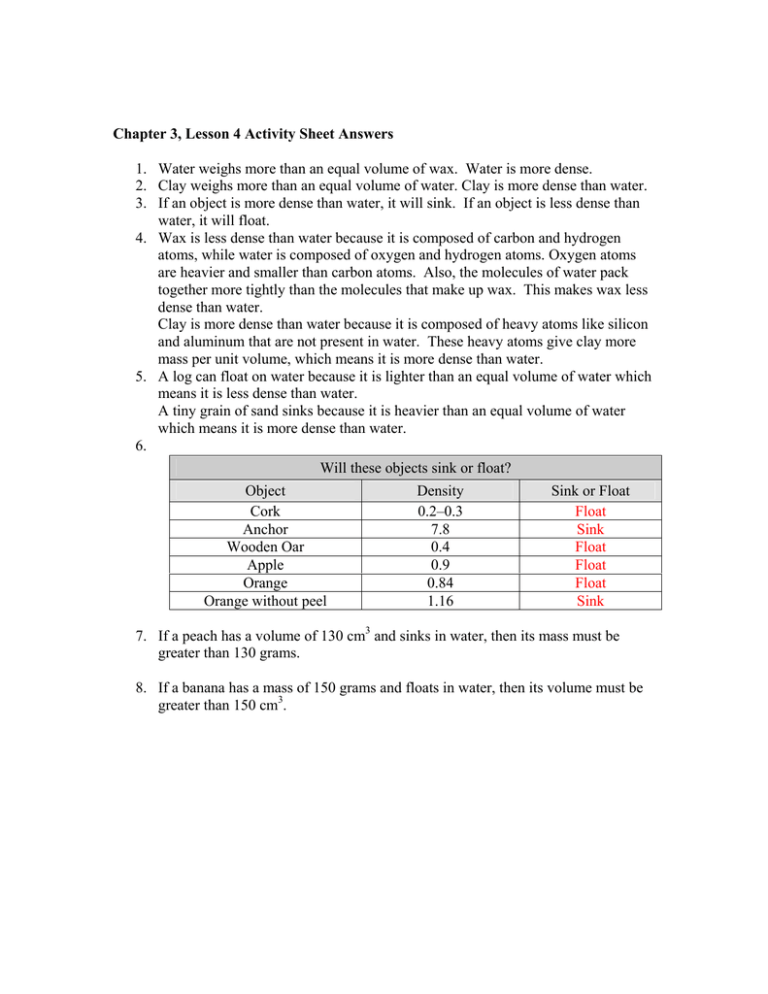
Chapter 3, Lesson 4 Activity Sheet Answers 1. Water weighs more than an equal volume of wax. Water is more dense. 2. Clay weighs more than an equal volume of water. Clay is more dense than water. 3. If an object is more dense than water, it will sink. If an object is less dense than water, it will float. 4. Wax is less dense than water because it is composed of carbon and hydrogen atoms, while water is composed of oxygen and hydrogen atoms. Oxygen atoms are heavier and smaller than carbon atoms. Also, the molecules of water pack together more tightly than the molecules that make up wax. This makes wax less dense than water. Clay is more dense than water because it is composed of heavy atoms like silicon and aluminum that are not present in water. These heavy atoms give clay more mass per unit volume, which means it is more dense than water. 5. A log can float on water because it is lighter than an equal volume of water which means it is less dense than water. A tiny grain of sand sinks because it is heavier than an equal volume of water which means it is more dense than water. 6. Will these objects sink or float? Object Cork Anchor Wooden Oar Apple Orange Orange without peel Density 0.2–0.3 7.8 0.4 0.9 0.84 1.16 Sink or Float Float Sink Float Float Float Sink 7. If a peach has a volume of 130 cm3 and sinks in water, then its mass must be greater than 130 grams. 8. If a banana has a mass of 150 grams and floats in water, then its volume must be greater than 150 cm3.
